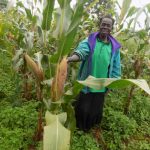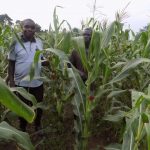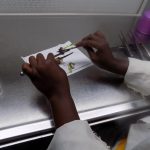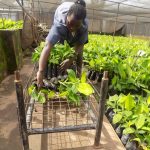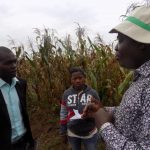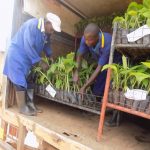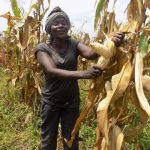A new report highlights sanitation challenges in schools as COVID-19 rages.
2 min readBy Christopher Bendana
Kampala
A Joint Monitoring Programme (JMP) by the WHO and UNICEF has revealed that 43 percent of schools around the world lacked access to basic handwashing with soap and water in 2019.
In a statement released to the press on August 13, the UN agencies’ report says around 818 million children lack basic handwashing facilities at their schools. More than one-third of these children (295 million) are from sub-Saharan Africa. In the least developed countries, 7 out of 10 schools lack basic handwashing facilities and half of the schools lack basic sanitation and water services.
 This puts them at increased risk of COVID-19 and other transmittable diseases
This puts them at increased risk of COVID-19 and other transmittable diseases
Hygiene and sanitation have been emphasized by health experts as key in mitigating the spread of the virus.
“Global school closures since the onset of the COVID-19 pandemic have presented an unprecedented challenge to children’s education and wellbeing,” said Henrietta Fore, UNICEF Executive Director. “We must prioritize children’s learning. This means making sure that schools are safe to reopen – including with access to hand hygiene, clean drinking water, and safe sanitation.”
Among the highlights in the report is that in the 60 countries at highest risk of health and humanitarian crises due to COVID-19, 3 in 4 children lacked basic handwashing service at their school at the start of the outbreak. It adds that half of all children lacked basic water service; and more than half lacked basic sanitation service.
It further says that 1 in 3 schools worldwide had either limited drinking water service or no drinking water service at all. 698 million children lacked basic sanitation services at their schools.
“Access to water, sanitation, and hygiene services are essential for effective infection prevention and control in all settings, including schools,” said Dr Tedros Adhanom Ghebreyesus, WHO Director-General. “It must be a major focus of government strategies for the safe reopening and operation of schools during the ongoing COVID-19 global pandemic.”
The UN agencies re-emphasize WASH-related protocols on hygiene measures, use of personal protective equipment, cleaning and disinfection, as well as providing access to clean water, handwashing stations with soap, and safe toilets for COVID-19 prevention in schools.
An initiative Hand Hygiene for All was recently launched by the agencies to support the most vulnerable communities with the means to protect their health and environment. It brings together international partners, national governments, public and private sectors, and civil society to ensure affordable products and services are available, especially in disadvantaged areas.
Schools in Uganda have been closed since March when the first COVID-19 cases were reported. Apart from hand washing to prevent COVID, girls further lack sanitary pads during their menstrual periods.
